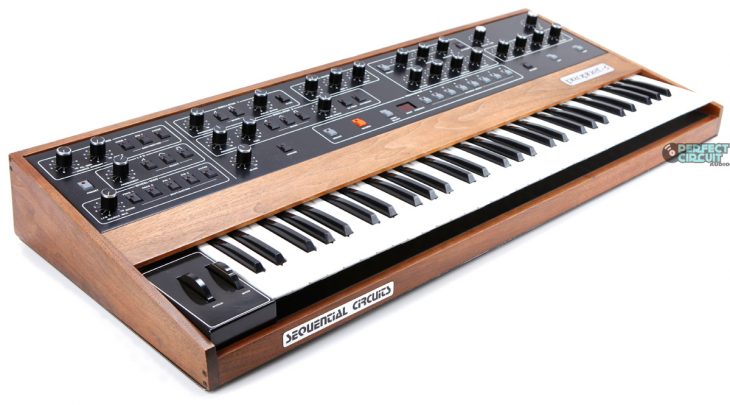
The Prophet-5 Synthesizer: A Look at its Impact on Music in the 80s and the Influence of Soft Cell and Depeche Mode.
The Prophet-5 synthesizer, developed by Dave Smith and released in 1978, is widely regarded as one of the most important synthesizers of all time. Its unique sound and innovative features made it a favorite of many musicians, including Soft Cell and Depeche Mode in the 1980s.
The Prophet-5 was the first fully programmable polyphonic synthesizer, meaning that users could save and recall patches they had created. It also featured five voices, or simultaneous notes, which was a significant upgrade from the monophonic synthesizers that came before it.
Soft Cell, a synth-pop duo from the UK, used the Prophet-5 extensively on their 1981 debut album, “Non-Stop Erotic Cabaret.” Their hit single “Tainted Love,” which became a global sensation, features the iconic sound of the Prophet-5’s arpeggiator, a feature that allowed users to create complex patterns of notes that could be triggered by a single key.
Depeche Mode, another influential synth-pop band from the UK, also used the Prophet-5 on their early albums. On their 1982 album “A Broken Frame,” the Prophet-5 was used to create the distinctive synth leads on tracks like “My Secret Garden” and “The Meaning of Love.”
One of the key features of the Prophet-5 was its ability to create analog sounds that were warm and rich. Unlike digital synthesizers, which use mathematical algorithms to create sounds, the Prophet-5 used voltage-controlled oscillators, filters, and amplifiers to produce its distinctive sound. This gave it a unique character that was highly sought after by musicians of the time.
The Prophet-5 also featured a number of innovative performance features, such as a joystick for real-time control of sound parameters and a polyphonic sequencer that allowed users to create complex patterns of notes that could be played back on multiple voices.
Today, the Prophet-5 is still highly regarded by musicians and synthesizer enthusiasts, and has been reissued in various forms by Dave Smith Instruments and other companies. Its influence can be heard in countless genres of music, from synth-pop and new wave to hip-hop and electronic dance music.
In conclusion, the Prophet-5 synthesizer played a significant role in the development of electronic music in the 1980s, and its influence can still be heard in music today. The fact that it was used extensively by bands like Soft Cell and Depeche Mode speaks to its enduring popularity and importance in the world of music technology.
